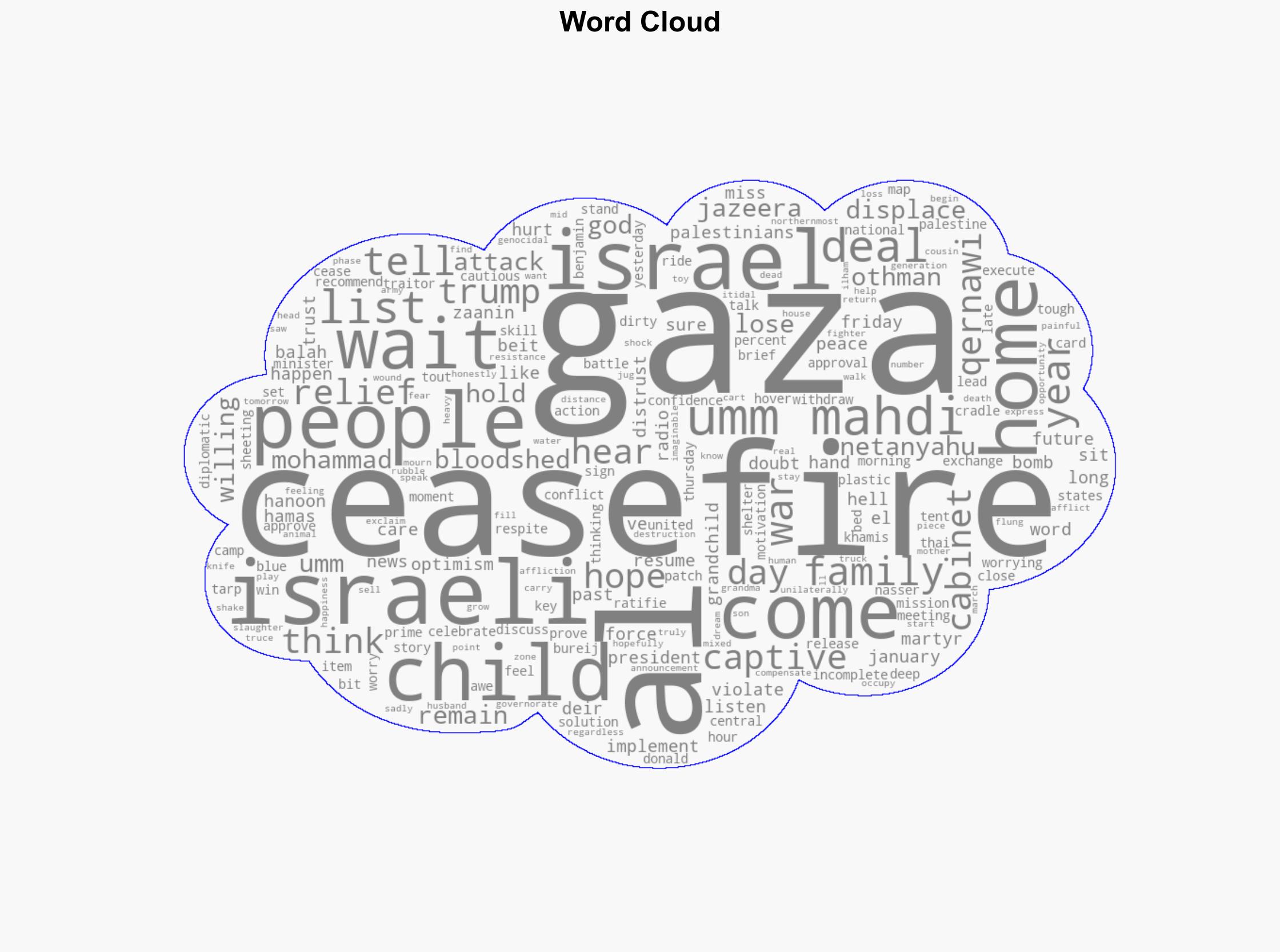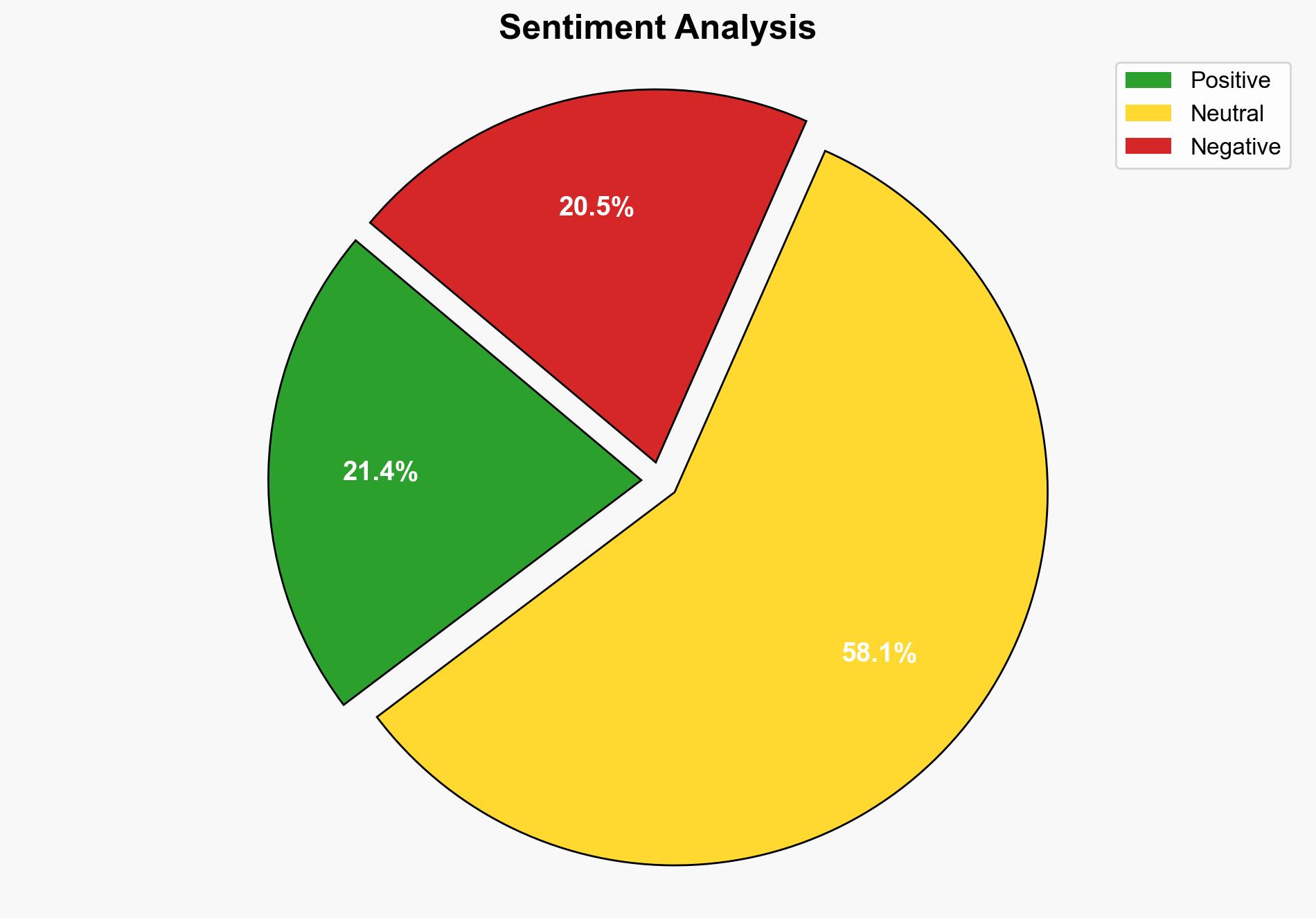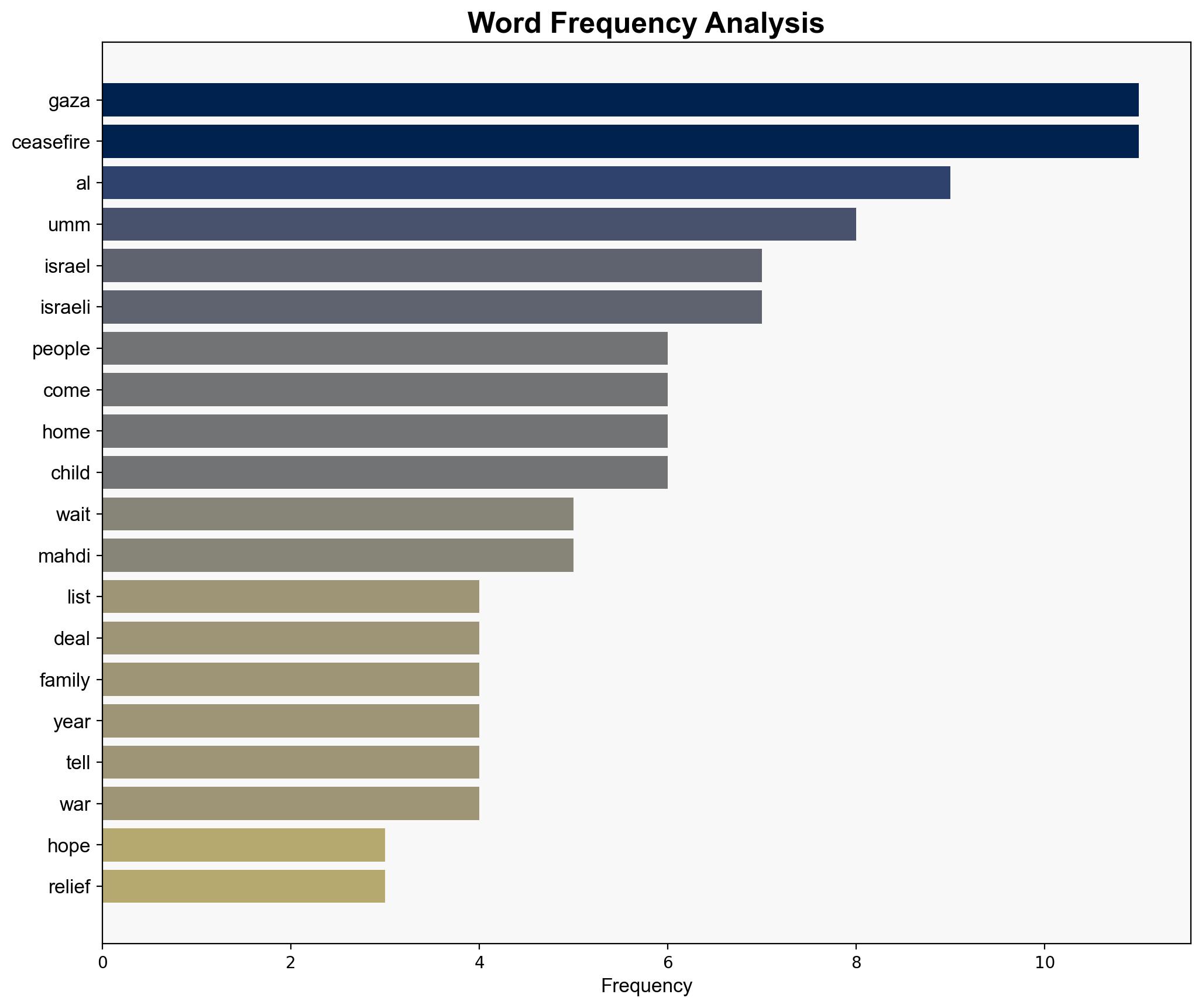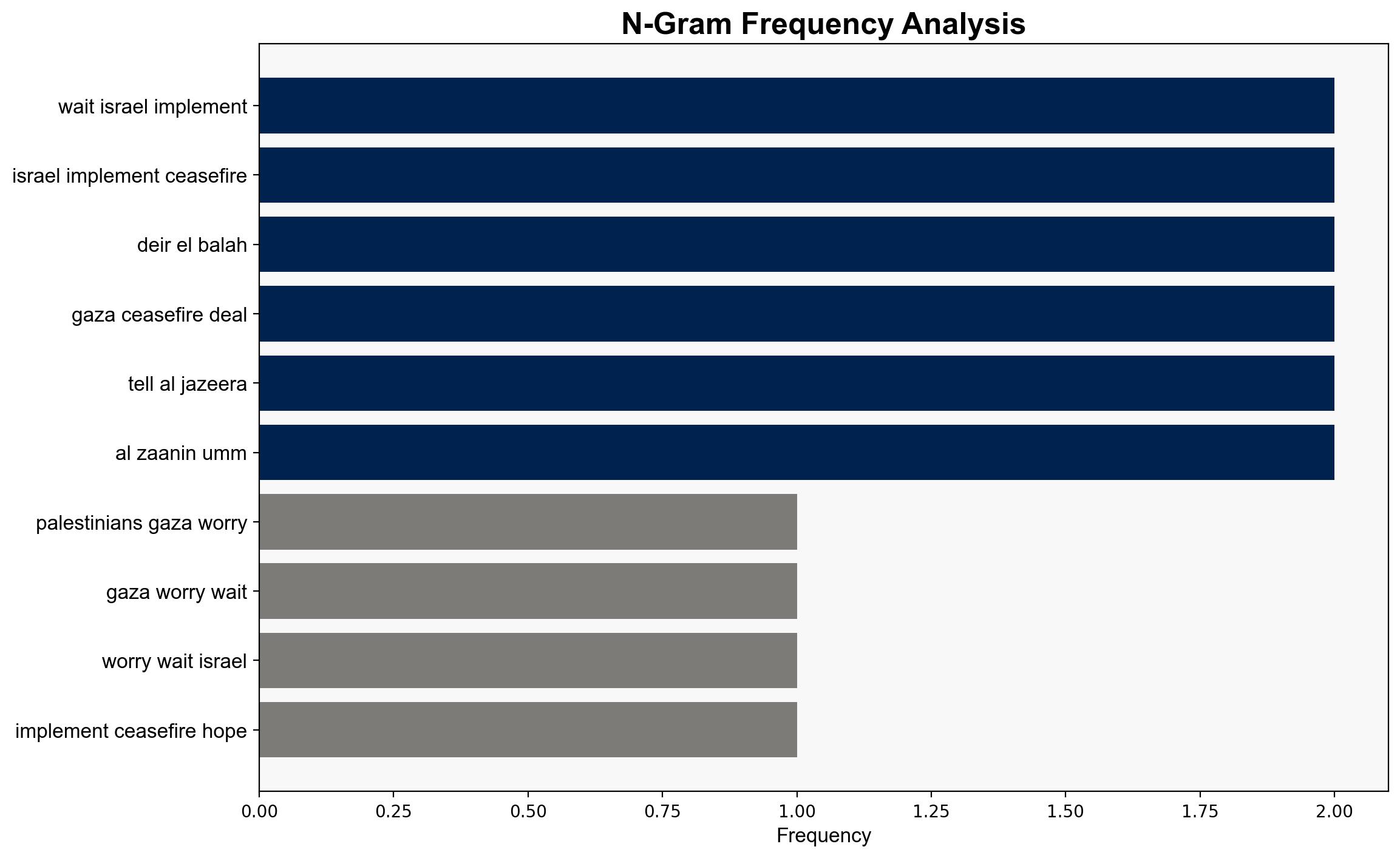Palestinians in Gaza worry and wait for Israel to implement ceasefire – Al Jazeera English
Published on: 2025-10-09
Intelligence Report: Palestinians in Gaza worry and wait for Israel to implement ceasefire – Al Jazeera English
1. BLUF (Bottom Line Up Front)
The most supported hypothesis is that the ceasefire will be fragile and potentially short-lived, given historical precedents and mutual distrust between the parties. The confidence level in this assessment is moderate due to the complexity of regional dynamics and external influences. It is recommended to closely monitor developments and engage in diplomatic efforts to stabilize the ceasefire.
2. Competing Hypotheses
1. **Hypothesis A**: The ceasefire will hold, leading to a period of relative stability in Gaza. This scenario assumes effective mediation and compliance by both parties, supported by international pressure.
2. **Hypothesis B**: The ceasefire will be violated, leading to renewed hostilities. This scenario considers historical patterns of ceasefire violations and deep-seated distrust between the parties.
Using the Analysis of Competing Hypotheses (ACH) 2.0, Hypothesis B is better supported due to the historical context of ceasefire violations and the expressed distrust by key individuals in the intelligence.
3. Key Assumptions and Red Flags
– **Assumptions**: Both parties are rational actors interested in maintaining peace; international mediators have sufficient influence.
– **Red Flags**: High levels of distrust, historical precedents of ceasefire violations, and potential spoilers within both parties.
– **Blind Spots**: Limited insight into internal decision-making processes of both parties and potential external influences from regional actors.
4. Implications and Strategic Risks
– **Patterns**: Historical cycles of ceasefire and violation suggest a pattern of temporary peace followed by renewed conflict.
– **Cascading Threats**: A breakdown in the ceasefire could lead to regional instability, affecting neighboring countries and potentially escalating into broader conflict.
– **Economic and Geopolitical Dimensions**: Prolonged conflict could exacerbate humanitarian crises and impact regional economic stability.
– **Psychological Dimensions**: Continued violence may deepen psychological trauma and entrench hostility among affected populations.
5. Recommendations and Outlook
- Engage in proactive diplomacy to reinforce the ceasefire, leveraging international partners to apply pressure on both parties.
- Prepare contingency plans for humanitarian aid in case of renewed conflict.
- Scenario-based Projections:
- **Best Case**: Ceasefire holds, leading to negotiations for a longer-term peace agreement.
- **Worst Case**: Ceasefire collapses, leading to widespread violence and regional destabilization.
- **Most Likely**: Ceasefire is intermittently violated but holds long enough to allow for temporary relief.
6. Key Individuals and Entities
– **Benjamin Netanyahu**: Expressed skepticism about the ceasefire.
– **Donald Trump**: Involved in touting the ceasefire as a solution.
– **Nasser al Qernawi**: Local resident expressing distrust.
– **Khamis Othman**: Displaced individual skeptical of Israeli intentions.
7. Thematic Tags
national security threats, regional focus, conflict resolution, humanitarian impact




